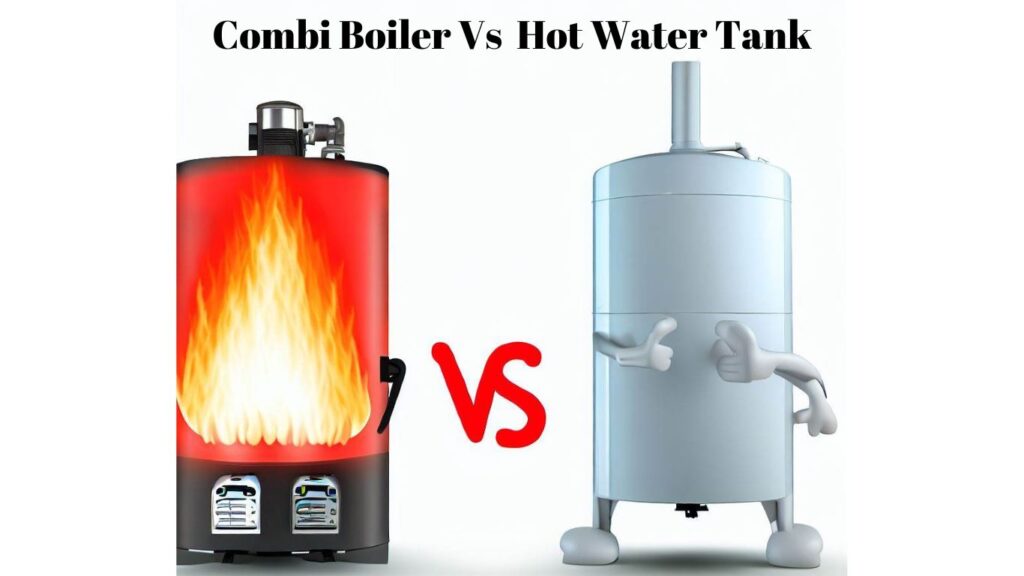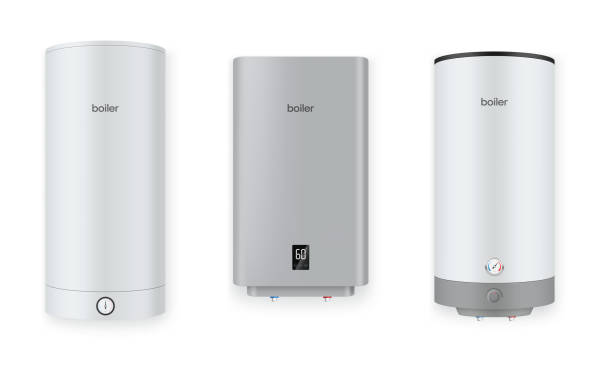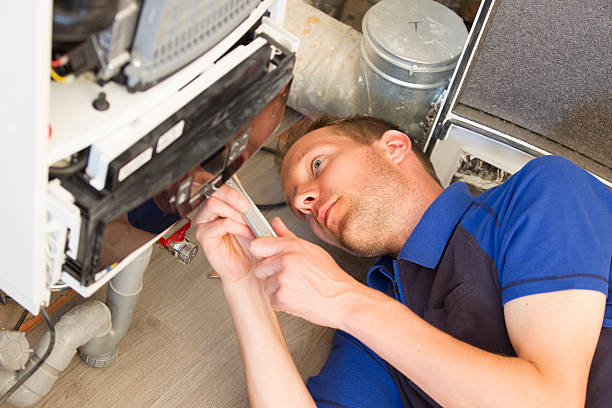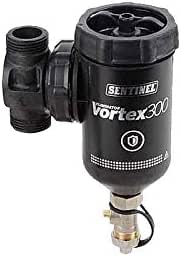
Introduction
As winter approaches, upgrading your heating system may be a top priority for you. Perhaps your old water tank system is no longer efficient, or you’re tired of running out of hot water mid-shower. Whatever the reason, upgrading to a combi boiler can be a great option. Not only are they more efficient, but they also provide instant hot water and take up less space in your home.
However, the process of upgrading your heating system can be daunting, and you may not know where to start. That’s why we’ve put together this guide to help you understand the benefits of a combi boiler, what to consider when choosing one, and how to prepare for the installation process.
In this guide, we will take you through the process of upgrading your heating system, from choosing the right system for your home to finding a reputable installer and ensuring that your heating system is working optimally.
Why upgrade your heating system?
Your heating system is one of the most important features of your home, providing warmth and comfort to you and your family. However, if your heating system is outdated, inefficient, or unreliable, it can cause a lot of frustration and discomfort. That is why upgrading your heating system can be a great investment for your home and your family’s well-being.
There are many reasons why you might want to upgrade your heating system. For instance, an old boiler or furnace may not be able to keep up with your heating needs, resulting in cold spots in your home or fluctuating temperatures. Additionally, an outdated heating system can be costly to operate, as it may require more energy to produce the same amount of heat.
Upgrading your heating system can also improve the overall safety of your home. For instance, old boilers can be prone to leaks, which can pose a serious health hazard to you and your family. By upgrading to a new, state-of-the-art heating system, you can enjoy better performance, greater efficiency, and improved safety.
So, whether you are looking to replace an old boiler, install a new combi boiler, or upgrade to a modern heating system, this guide has got you covered.

The different types of heating systems
When it comes to heating systems, there are several different types to choose from. The most commonly used heating systems are central heating systems and radiant heating systems.
Central heating systems use a boiler to heat water or air, which is then distributed throughout the house via a system of pipes and radiators.
Radiant heating systems, on the other hand, use panels or tubes installed in the walls or floors of a room to heat the space directly. Steam heating systems, as the name suggests, use steam to heat the radiators and distribute heat throughout the home.
It’s also worth considering renewable heating systems such as heat pumps, which extract heat from the air or ground and use it to heat your home. Solar thermal systems are another renewable option, which use solar panels to heat water that can then be used for both heating and hot water.
When choosing a heating system, it’s important to consider factors such as the size of your home, your budget, and your energy efficiency needs. Consulting with a heating system professional can also help you determine the best option for your specific needs.
Understanding combi boilers and how they work
Unlike traditional boilers, combi boilers don’t require a separate hot water tank or cylinder, which saves on space, installation costs and maintenance costs.
Combi boilers work by heating water directly from the mains supply, which means hot water is available on demand, whenever you need it. When you turn on a hot water tap, the combi boiler heats the water and sends it directly to the tap, without the need for a separate water storage tank. Similarly, when you turn on your central heating, the combi boiler heats the water and sends it through the radiators in your home.
Because combi boilers don’t require a separate hot water tank, they are more energy efficient and can help reduce energy bills. This is because there is less heat loss from a hot water tank, which means less energy is required to keep the water hot. Additionally, since combi boilers heat water on demand, you only heat the water you need, which reduces wastage further.
It’s important to note that combi boilers may not be suitable for all homes, particularly those with a high demand for hot water. If you have a large family, or if you use a lot of hot water for baths or showers, you may need a system boiler or a conventional boiler instead. It’s always best to consult a heating engineer to determine the best type of boiler for your home.
The benefits of upgrading to a combi boiler
Upgrading your heating system to a combi boiler can bring many benefits to your home. A combi boiler, also known as a combination boiler, is a high-efficiency water heater and central heating unit in one compact unit. One of the main benefits of a combi boiler is that it provides instant hot water on demand, which means no more waiting for the water tank to heat up before you can take a shower or wash dishes.
Combi boilers are also more energy-efficient than traditional heating systems. They are designed to heat water directly from the mains supply, which means they don’t have to heat a whole tank of water, saving you money on your energy bills. In fact, according to the Energy Saving Trust, replacing an old boiler with a new combi boiler could save homeowners up to £300 a year on their energy bills.
Another benefit of a combi boiler is that it takes up less space than a traditional heating system. With no need for a separate water tank or cylinder, a combi boiler is ideal for homes with limited space or for those who want to free up space in their loft or airing cupboard.
Finally, a combi boiler is more environmentally friendly than conventional heating systems. With less water waste and improved energy efficiency, a combi boiler can help to reduce your carbon footprint and make your home more sustainable.
Factors to consider before upgrading to a combi boiler
Before upgrading to a combi boiler, there are a number of factors to consider. First and foremost, you need to assess the size of your property and the hot water demand that you need. Combi boilers are ideal for smaller properties with only one bathroom, but if you have a larger property with multiple bathrooms, you may want to consider a system or regular boiler instead.
Another important factor to consider is the existing pipework in your home. Combi boilers require a different type of pipework than traditional systems, so it’s important to assess whether your current pipework is suitable for the upgrade. If not, you may need to consider having new pipework installed, which can add extra costs to the upgrade.
It’s also important to consider the age and condition of your current heating system. If your existing system is very old or in poor condition, you may need to replace other components, such as radiators or valves, to ensure that your new combi boiler works effectively.
Finally, it’s important to consider the cost of the upgrade. While combi boilers can be more efficient and cost-effective in the long run, the initial installation costs can be higher than other types of boilers. It’s important to get a number of quotes from experienced heating engineers to ensure that you get the best possible price for your upgrade.
The installation process
The installation process of a new heating system can be a complex and lengthy process that requires the expertise of a professional heating engineer. It is important to hire a qualified and experienced professional who can help you with the installation process from start to finish.
Before the installation process begins, the engineer will conduct a thorough survey of your home to determine the best type of heating system for your needs. They will also assess the current heating system and make any necessary adjustments to ensure the new system is compatible with your home’s existing infrastructure.
Once the system has been selected, the engineer will begin the installation process which will typically involve several stages. This may include the installation of the new boiler, the replacement of old pipes and radiators, the installation of new controls, and the final testing and commissioning of the system to ensure it is working efficiently and safely.
Throughout the installation process, the engineer will keep you updated on progress and discuss any issues or changes that need to be made. They will also provide you with instructions on how to use the new system and any maintenance requirements to keep it working effectively.
The installation process can take anywhere from a few days to a few weeks depending on the complexity of the project. However, by working with a qualified professional and preparing your home ahead of time, you can ensure a smooth and successful installation process that will ultimately provide you with a reliable and efficient heating system for years to come.

The cost of upgrading to a combi boiler
Upgrading your heating system to a combi boiler can be a significant investment but it can also save you a lot of money in the long run. The cost of upgrading will depend on a few different factors.
Firstly, the size of your property will affect the cost, as a larger property will require a more powerful boiler, which will be more expensive. Additionally, the age and condition of your existing system will also impact the cost, as older systems may require more extensive work to be replaced.
On average, the cost of upgrading to a combi boiler can range from £2,000 to £4,000, but this can vary depending on the factors mentioned above. It’s important to consider the long-term savings that can be made by upgrading, such as increased energy efficiency, reduced energy bills, and lower maintenance costs.
When considering the cost of upgrading, it’s important to choose a reputable and experienced heating engineer to carry out the work. They will be able to advise you on the best combi boiler for your property and provide you with a detailed quote for the work required.
While the cost of upgrading to a combi boiler may seem high, the long-term benefits and savings can make it a worthwhile investment for any homeowner looking to improve their heating system.
Maintenance of a combi boiler
Maintaining a combi boiler is essential to ensure it lasts for many years and operates efficiently. Luckily, combi boilers require minimal maintenance, but there are still a few things that you should be aware of.
One of the most important things to do is to get your combi boiler serviced annually by a Gas Safe registered engineer. This will ensure that the boiler is operating safely and efficiently. The engineer will also check for any potential issues that may arise and fix them before they become bigger problems.
It’s also important to keep an eye on the pressure gauge on your combi boiler. If the pressure drops too low, the boiler will not function properly, and you may not have any hot water or heating. You can usually top up the pressure yourself by following the instructions in the manual. If you’re unsure, it’s best to contact a professional.
Finally, keep the area around your combi boiler clean and free from clutter. This will ensure that there is adequate airflow around the boiler and that it can operate safely. If you notice any strange noises or smells coming from your combi boiler, it’s best to turn it off and contact a professional right away.
By following these simple tips, you can ensure that your combi boiler operates efficiently and safely for many years to come.
Other upgrades to consider for your heating system
When upgrading your heating system, there are other upgrades you should also consider. The first upgrade to consider is a smart thermostat. A smart thermostat allows you to control your heating system remotely, meaning you can adjust the temperature of your home from your smartphone while you’re away. This can save you money on your heating bills by allowing you to only use heating when it’s needed.
Another upgrade to consider is adding a magnetic filter to your heating system. A magnetic filter can help to prolong the lifespan of your heating system by capturing debris and sludge that can cause blockages and damage to your system.

If you have a larger home, you may also want to consider upgrading to a zoned heating system. A zoned heating system allows you to control the temperature of different areas of your home independently. This means you can heat the areas that need it the most, rather than wasting energy heating the whole house.
Finally, if you’re looking to be more environmentally friendly, you could consider installing a renewable heating system, such as a ground source heat pump or an air source heat pump. These systems use natural energy sources to heat your home and can significantly reduce your carbon footprint.
However, they can be more expensive to install than traditional heating systems, so it’s important to weigh up the costs and benefits before making a decision.
Conclusion: Is a Combi Boiler Upgrade Right for You?
In conclusion, upgrading your heating system from a water tank to a combi boiler can be a great decision, but it’s not always the right choice for everyone. It’s important to consider your individual needs and circumstances before making a decision.
If you have a small or medium-sized home, and your hot water demands are not excessive, a combi boiler can be an excellent choice. It can provide an efficient and convenient heating and hot water solution, as well as save you space and money.
However, if you have a larger home or a high demand for hot water, a combi boiler might not be the best option for you. In this case, a system or regular boiler with a separate hot water tank might be more suitable.
It’s also important to consider the initial cost of a combi boiler upgrade. Although it can save you money in the long run, the upfront cost can be significant. Make sure to get quotes from reputable installers and factor in any additional costs such as installation and potential upgrades to your pipework or gas supply.
Overall, upgrading your heating system is a significant investment, and it’s important to make an informed decision. We hope this guide has provided you with useful information to help you decide whether a combi boiler upgrade is right for you.
We hope you found our guide to upgrading your heating system useful. Upgrading from a water tank to a combi boiler can be a big change, but it can also bring many benefits to your home, including improved energy efficiency and a more reliable heating system.
We hope that our guide has provided you with the information you need to make an informed decision about upgrading your heating system. If you have any questions or need further assistance, please do not hesitate to contact a professional to help you out.
